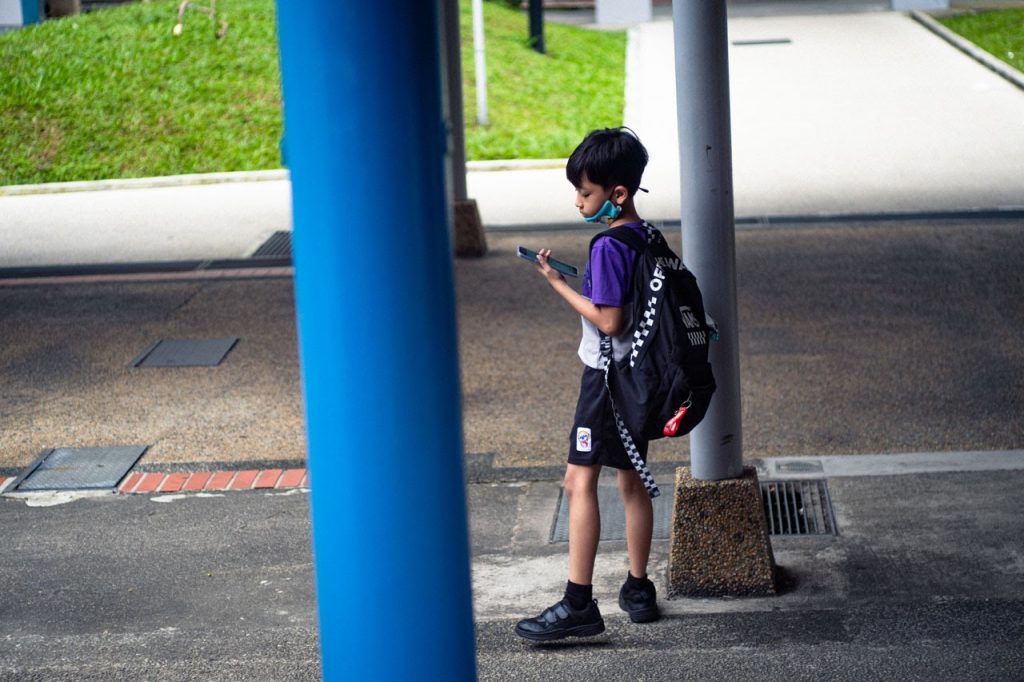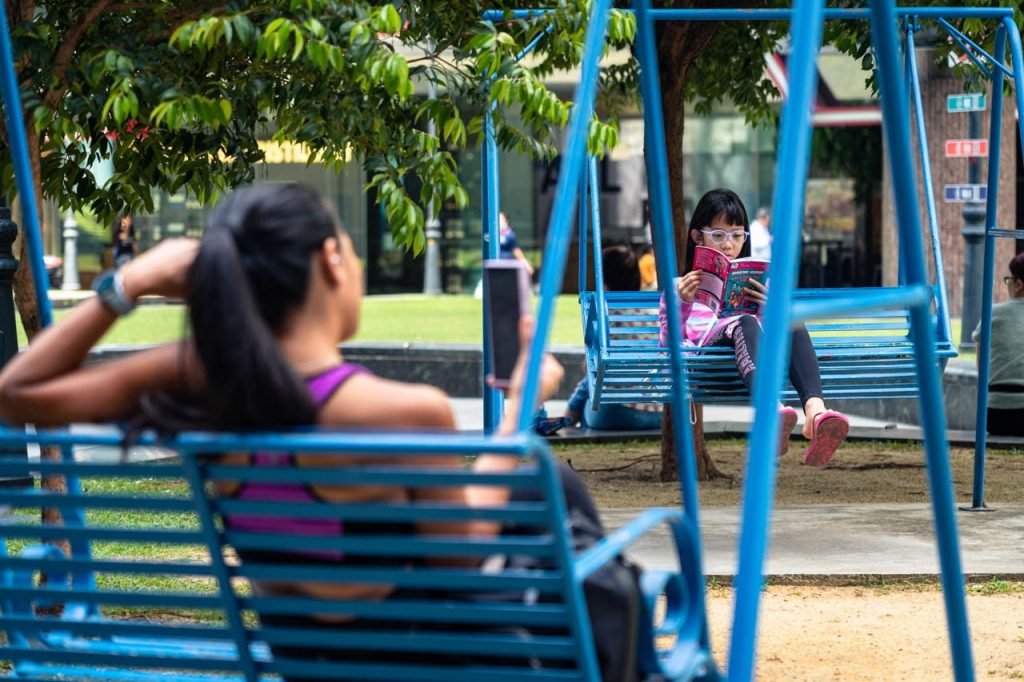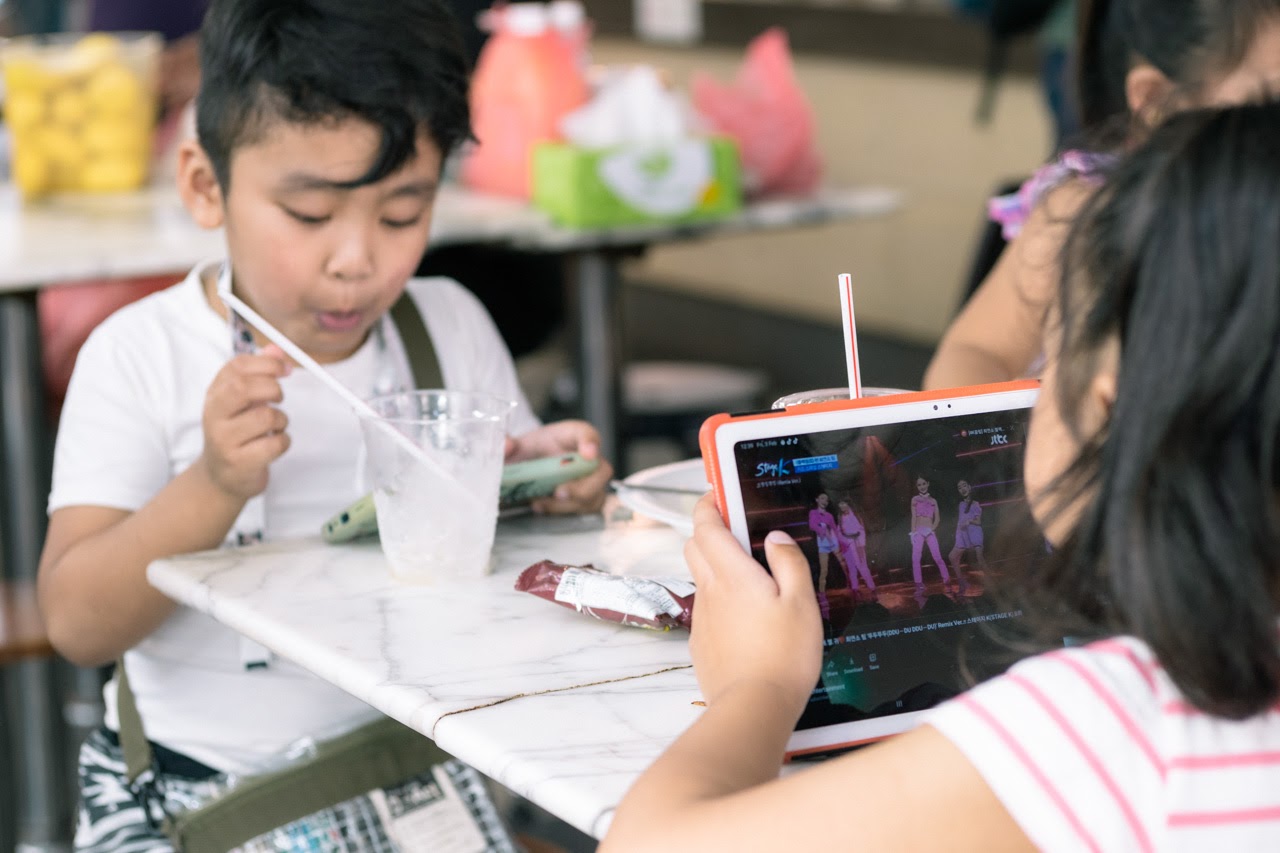Top image: Stephanie Lee / RICE file photo
Navigating parenthood in a world dominated by screens presents its own set of challenges. Constant distractions from phones, tablets, computers, and TVs make it increasingly difficult for parents to maintain control over their children’s attention.
The pervasive presence of screens poses a unique struggle for modern parents— particularly millennials, who find themselves at odds with their own experiences growing up. Despite benefiting from connectivity in the ’90s, they now fret over the potential harms of excessive screen time on their children’s development.
Yet, the issue of screen time isn’t so black-and-white. While no parent wants their children’s faces glued to screens 24/7, what truly matters is the quality and context of the content they consume. It’s not merely about the hours spent in front of a screen but rather what they are watching and how they engage with the information presented.
As tech advances into our daily lives at blinding speed each day, finding the right balance for screen time isn’t always clear-cut. So how do Singapore’s parents and caregivers manage their approach?

“I grew up in the early days of the internet. I had internet connectivity during the time when we had to unplug the phone line to go online. I remember my classmates being so jealous that I could download songs off Napster and talk to strangers on mIRC.
In hindsight, though, that was pretty dangerous, especially as a child with unfettered access to the internet. I was lucky not to have fallen victim to predators on chatrooms but unlucky enough to have downloaded viruses that ruined the family PC.
It’s given me more thought on how to manage my two children’s access to the internet. Not many parents know how to install filters and security measures to prevent their kids from going to the wrong places online, but I do! I strongly recommend parents to dig into their computer or phone parental control settings to ensure the safety of children when they go browsing on the internet. I don’t even have to do much to regulate their screen time, too, because I can set daily time limits on all devices. Do all this from the start so your kids get used to the boundaries, like mine.”
— Azman, 36
“I feel for children—especially young children—screen usage is more detrimental than beneficial.
Young children learn by playing and interacting with others, build confidence through physical activity, and develop motor skills. None of the social or physical development will be met through devices. Kids will develop restlessness and get easily bored with increasing screen time.
At home, we have about 30 minutes of screen time a day at home during meals. I will be there so they can’t choose whatever they like to watch. Usually, we go for educational programs.
I even use it as punishment—I will cut screen time for days if my kids act out. It’s hard to take back the remote control, and they can throw a tantrum. But I will stick to the agreed boundaries.”
— Tami, 40

“I’ll be honest: I’m one of those parents who lets their children play with tablets and screens to keep them occupied.
As a single parent, I struggle to juggle both my work and my child’s boredom at home. I work from home, and the hours are long and erratic. I can’t focus on my job while being super involved in what my son does in his free time. When it gets tiring to handle him, I just let him use my phone for an hour or two—most of the time he’s just on TikTok or playing a game.
Of course, I feel bad that I can’t spend quality time with him or control his screen time. But those are luxuries compared to ensuring there’s always food for us on the table.”
— Niki, 30
“My wife and I are very mindful of our children’s relationship with technology. Our kids are at the age when they’re realising YouTube exists, and they can watch anything that comes to mind.
One thing that surprises me is how natural they are with apps and tech. Somehow they can find a way to find a loophole or work around my parental restrictions—I found my children watching random Mr Beast videos on TV one day. I made sure to lock the content to just stuff on YouTube Kids and sat down with them to explain why they have to keep within the safer boundaries of online content.
I think when you’re being open and truthful to children, and get them to agree on the rules, it’s easier to enforce it. When you involve them in the process, they know why they must limit their screen time and keep to the agreed timing. I also make sure that we spend quality time online together, so it reinforces the fact that these devices are tools for education and not for mindless entertainment. Recently, we had a wholesome weekend together as a family, diving deep into the world of ants on YouTube!”
— Andrew, 29

“My daughter is turning one soon, and I’m sticking to the general rule: no screen time until she turns two. I don’t care if I’m tired or don’t have enough sleep; I’ll never let screens distract her.
In fact, I’ll never let her have her own mobile phone until much older. I want her to be a social, active person, and I plan to push her to play outside and interact with other people instead of rotting her brain with games or videos at home. Maybe it’s because I’ve seen how toxic my older brother was when he was addicted to World of Warcraft back then. The online stuff that kids are into these days are horrible too. What the hell is ‘skibidi toilet’?
Now, I’m worried that my daughter will grow up hating me because I’ll be super controlling about her screen time. She will surely see how her future friends and classmates have such easy access to devices while she won’t. What I’ll tell her is that she might feel left out now, but she will thank me when she becomes a charismatic, socially-savvy adult.”
— Michelle, 27






